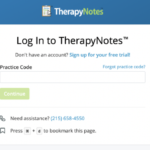Embarking on the journey of mastering the English language is a gateway to limitless opportunities. Whether pursuing academic excellence or aiming for professional growth, assessing your English proficiency is a pivotal step. This article unravels the intricacies of English level tests, providing valuable insights, practical tips, and resources to empower your linguistic journey.
Related: AR Test Answers – Answers for AR Tests
- Navigating the Testing Landscape
- English Level Test With Answers
- Strategies for Success
- Tips for Excelling in an English Level Test
- Online English Level Tests with Answers
- Choosing the Right English Level Test
- Real-life Applications of English Level Proficiency
- Importance of Continuous Learning
- Navigating Challenges and Dispelling Myths
- Decoding Scores: Understanding English Level Test Results
- Future Trends in English Proficiency Testing
- Want to Take English Level Test?
- Final Thoughts
Navigating the Testing Landscape
Diverse forms of English level tests cater to varied needs, offering a spectrum of evaluation methods. From globally recognized standardized tests like TOEFL and IELTS to the convenience of online proficiency assessments and traditional in-person evaluations, understanding the nuances of each type is paramount.
But according to other sources discussing IELTS exam achievement, about 50% of first-time test takers do not receive the results they want after their first try.
English Level Test With Answers
Grammar:
- Choose the correct form of the verb: They ______ (study) for hours yesterday.
- a) study
- b) studies
- c) studying
- d) studied
- Identify the sentence with the correct subject-verb agreement:
- a) The team of scientists is conducting experiments.
- b) The team of scientists are conducting experiments.
- Select the appropriate pronoun: Sarah and ___ went to the museum.
- a) her
- b) she
- c) them
- d) she and her
- Choose the correct tense: By the time she arrives, we ___ (finish) the project.
- a) finishes
- b) finish
- c) finished
- d) have finished
- Identify the sentence with the correct use of articles:
- a) I need a advice.
- b) I need an advice.
- c) I need advice.
- d) I need the advice.
Vocabulary:
- Choose the synonym for “ephemeral”:
- a) Lasting
- b) Brief
- c) Eternal
- d) Permanent
- Identify the antonym for “ascend”:
- a) Rise
- b) Descend
- c) Soar
- d) Climb
- Select the correct definition for “ubiquitous”:
- a) Rare
- b) Present everywhere
- c) Fragile
- d) Confused
- Choose the correct word to complete the sentence: The teacher asked the students to ___ quietly during the exam.
- a) quite
- b) quit
- c) quitee
- d) quiet
- Identify the correct plural form: The correct plural of “child” is:
- a) childs
- b) childes
- c) children
- d) child’s
Reading Comprehension:
Read the following passage and answer the questions:
Passage: In the heart of the city, there stands an old library that has been a source of knowledge for generations. Its architecture reflects a blend of history and modernity, attracting both scholars and tourists alike.
- What is the main idea of the passage?
- a) The city has many old buildings.
- b) The library is a source of knowledge and has historical significance.
- c) Modern architecture is more attractive than historical architecture.
- d) Scholars and tourists do not visit the library.
- According to the passage, who is attracted to the old library?
- a) Only scholars
- b) Only tourists
- c) Both scholars and tourists
- d) Neither scholars nor tourists
- What does the architecture of the old library reflect?
- a) Only history
- b) Only modernity
- c) Only scholars
- d) A blend of history and modernity
- What stands in the heart of the city according to the passage?
- a) A modern building
- b) An old library
- c) A tourist attraction
- d) A historical monument
- Why do scholars and tourists visit the old library?
- a) Only for historical reasons
- b) Only for modern architecture
- c) For both historical significance and modern architecture
- d) Neither for historical significance nor modern architecture
Feel free to use these questions for testing or practicing English language skills.
Click the button below to get the full English Level Test With Answers
Decoding Test Components
Beyond the realms of grammar and syntax, English level tests encompass a holistic evaluation. Reading comprehension, listening skills, writing proficiency, and speaking abilities form the crux of these assessments.
Reading Comprehension: Unveiling Textual Mastery
Evaluate your capacity to comprehend and interpret written information with precision. Navigating through complex passages, this component tests your ability to extract meaning and infer context.
Listening Skills: The Art of Auricular Comprehension
Demonstrating how well you grasp spoken language, this facet assesses your proficiency in understanding diverse accents, tones, and nuances in verbal communication.
Writing Proficiency: Crafting Coherent Narratives
Expressing thoughts eloquently is evaluated through writing proficiency. This section assesses your capability to articulate ideas logically and cohesively, emphasizing the importance of effective written communication.
Speaking Abilities: Oratory Prowess Unleashed
Oral communication skills are put to the test, gauging your ability to express ideas, opinions, and responses with clarity and coherence. Verbal fluency and pronunciation are key focal points.
Strategies for Success
Understanding the components alone is insufficient; success in English level tests demands strategic preparation. In the following sections, we’ll unravel proven strategies, study resources, and practical tips to elevate your performance.
Comprehensive Preparation Toolkit
Navigate the sea of study materials and resources designed to fortify your linguistic arsenal. From interactive language courses to personal tutors, explore avenues that align with your learning style.
Mock Exams and Practice Tests
Simulate the testing environment with mock exams and practice tests. These invaluable tools not only enhance your familiarity with test formats but also refine your time management skills, a critical aspect of success.
Overcoming Common Challenges
Test anxiety, time management woes, and vocabulary limitations can impede success. Uncover tailored strategies to conquer these challenges, ensuring you step into the testing arena with confidence.
Tips for Excelling in an English Level Test
The path to mastery involves more than just rote learning; it requires a nuanced approach. Consistent practice forms the bedrock of success, refining your language skills over time. Adopting time-saving strategies ensures efficiency, and techniques for enhancing your vocabulary are essential for tackling diverse test scenarios.
Consistent Practice: The Cornerstone of Proficiency
Language proficiency is a journey, not a destination. Regular practice, encompassing all test components, is paramount. Engage in reading, listening, writing, and speaking activities consistently to fortify your linguistic abilities.
Time-Saving Strategies: Navigating the Clock
Efficient time management is a skill in itself. Learn strategies to navigate through test sections swiftly without compromising accuracy. Balancing speed and precision is key to optimizing your overall performance.
Vocabulary Enhancement Techniques: Words as Artillery
A rich vocabulary is your arsenal in the world of language proficiency tests. Employ techniques such as word association, contextual learning, and mnemonic devices to expand and retain your word bank effectively.
Online English Level Tests with Answers
The digital age brings forth a myriad of opportunities, and English proficiency assessments are no exception. Dive into the realm of online tests, exploring the benefits they offer. Additionally, get a glimpse of sample questions and answers, demystifying the online testing experience.
Benefits of Online Assessments
Online English level tests provide unparalleled flexibility. Explore the advantages of convenience, accessibility, and rapid result turnaround that these digital evaluations offer.
Sample Questions and Answers
Gain insight into the format and types of questions you may encounter in an online English level test. Understanding these nuances equips you with the confidence needed to navigate the digital assessment landscape.
Choosing the Right English Level Test
Selecting the most fitting English level test aligns with understanding your goals and recognizing the distinct formats each test employs. Delve into the decision-making process, ensuring that the chosen test harmonizes with your objectives and showcases your language proficiency accurately.
Understanding Your Goals: A Prerequisite
Different tests cater to diverse purposes. Clarify your objectives, whether it be academic admission, professional certification, or personal development. Tailoring your choice to align with your goals is pivotal.
Recognizing Test Formats: Cracking the Code
Each test follows a unique format. Grasp the intricacies of test structures, question types, and evaluation criteria. This knowledge empowers you to tailor your preparation to the specific demands of your chosen test.
Real-life Applications of English Level Proficiency
Beyond the examination room, your English proficiency has tangible applications in real life. Explore how mastering the language opens doors to academic pursuits and propels career advancement.
Academic Pursuits: A Gateway to Opportunities
English proficiency is often a prerequisite for academic endeavors. From admissions tests to coursework assessments, your language skills play a pivotal role in unlocking educational opportunities.
Career Advancement: The Language of Professional Growth
In the professional landscape, English proficiency is a distinguishing factor. Whether communicating with international clients, writing reports, or participating in meetings, a strong command of the language fosters career advancement.
Importance of Continuous Learning
Language standards evolve, and continuous learning is essential for staying abreast of these changes. Explore the dynamic nature of language, and understand how ongoing learning contributes to personal and professional growth.
Evolving Language Standards: A Dynamic Landscape
Language is dynamic, with nuances, expressions, and vocabulary constantly evolving. Embrace the fluidity of language standards, recognizing the importance of staying current.
Personal and Professional Growth: The Lifelong Journey
View language proficiency not as a destination but as a lifelong journey. Continuous learning not only sustains your existing skills but also cultivates adaptability and resilience in the face of linguistic evolution.
Navigating Challenges and Dispelling Myths
Success in English level tests is not without its challenges, and myths can cloud the preparation process. Address common misconceptions, such as the one-size-fits-all approach and the notion of instant language mastery.
One-size-fits-all Approach: Myth or Reality?
Recognize the uniqueness of your language learning journey. Tailor your preparation to your strengths and weaknesses, dispelling the myth of a one-size-fits-all approach to language proficiency.
Instant Language Mastery: Separating Fact from Fiction
Language mastery is a gradual process. Dispelling the myth of instant proficiency, understand that consistent effort and dedication are the true keys to linguistic excellence.
Decoding Scores: Understanding English Level Test Results
Comparing English level test scores involves understanding global frameworks and interpreting results accurately. Unveil the mystery behind scores, ensuring you comprehend their implications and relevance.
Global Frameworks: A Universal Yardstick
English level test scores adhere to global frameworks. Decode the common standards that facilitate cross-cultural understanding and recognition of language proficiency.
Interpretation of Results: Beyond the Numbers
Understanding your test scores goes beyond numerical values. Grasp the nuanced interpretation of results, recognizing your strengths and areas for improvement.
Future Trends in English Proficiency Testing
As technology continues to shape our world, English proficiency testing is not immune to innovation. Explore emerging trends, from technological advancements to adaptive testing models, that are reshaping the landscape of language assessments.
Technological Advancements: Revolutionizing Testing
The integration of technology is revolutionizing how we approach language proficiency testing. Dive into the impact of AI, online platforms, and interactive tools that enhance the testing experience and accuracy.
Adaptive Testing Models: Tailoring Assessments to Individual Skills
Move beyond traditional one-size-fits-all assessments. Adaptive testing models leverage technology to tailor assessments based on individual skills, providing a personalized and accurate evaluation of language proficiency.
Want to Take English Level Test?
If after taking the English Level Test, you didn’t perform satisfactorily, take the test again by clicking the button below:
Final Thoughts
In the grand tapestry of linguistic evolution, mastering English is not just a skill; it’s a dynamic journey with endless possibilities. English level tests serve as milestones, reflecting not only proficiency but also the adaptability to a language in flux. Armed with insights, strategies, and a commitment to continuous learning, you’re not just preparing for a test; you’re shaping a future where language is your ally.
Related: Chef Interview Questions and Answers PDF





